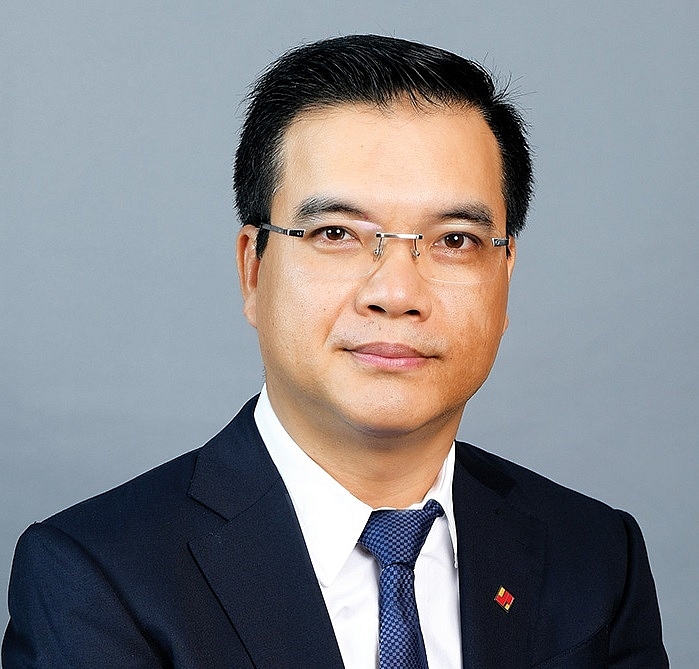SCIC works on government fund plan
 |
| Nguyen Chi Thanh |
In a recent statement, State Capital Investment Corporation (SCIC) presented its roadmap for the transition to a government investment fund. Could you elaborate on this?
Our current draft development strategy for the next 10-15 years includes the orientation to focus on promoting capital investment, business activities, and the role as an official government investment fund.
SCIC’s development under this model goes well with the goals set in our preparation and direction in the operational strategy. Accordingly, from 2025, SCIC will shift its focus from corporate governance to capital investment and trading, through which our organisation will implement its role as an investor for the government with the aim of looking for those opportunities in sectors that bring the highest advantages in economic efficiency or where the state needs to improve existing conditions.
Amid the current economic developments, SCIC’s direction of becoming a government investment fund is primarily a practical solution that will enhance the size and quality of the state’s asset portfolio, thereby adding a crucial revenue source to the state budget and contributing to raising economic resilience and national financial security.
What are the most significant changes after SCIC’s transformation?
One of the biggest differences between the general corporation model and the investment fund model is the autonomy and self-determination in capital investment and trading activities as well as the size of the managed capital. If still operating under the form of a state-owned enterprise (SOE) as currently, SCIC would encounter several issues with the legal framework that applies to all SOEs.
After changing to the government investment fund model, together with the promulgated specialised legal regulations, SCIC would be untied, and you could say grown up to the level where it can proactively implement its business activities.
At that time, although the management of state capital in enterprises will still be performed by SCIC, the nature of the relationship between SCIC and enterprises will change significantly. Accordingly, SCIC can demonstrate its involvement and actively support businesses in improving the quality of corporate governance according to best practices.
Because SCIC will be operated under a different legal framework than at the moment, decisions could be made more flexibly. Similarly, enterprises will be more agile and attached to the market, instead of being bound by many legal provisions for SOEs today. In our eyes, this is the key to a qualitative change in the management, investment, and operation of state capital in enterprises, thereby improving SCIC’s efficiency in gradually performing its role as one of the important revenue sources for the state budget.
How will SCIC’s investment fund operate?
Nowadays, most government investment funds in the world mainly operate under one of two forms: either as a fund management company or an investment company. We are currently working to choose one of these two models.
However, based on the institutional system and policy mechanisms for our operations, at the moment, we see that the model of an investment company might be more suitable to promote SCIC’s role of a government investment fund. As an example, currently, Singapore’s Temasek is operating in this form.
After the transformation to this model, SCIC will function as the government’s investment arm for important sectors and fields that the state needs to hold. We also see that SCIC has certain advantages to create pervasiveness and pave the way for other economic sectors to develop, thereby becoming an effective tool for the state to carry out corporate restructuring and economic development.
SCIC will continue to promote capital investment and business activities in key sectors. To do so, the construction of a legal framework and the recruitment of skilled human resources for our operations under the model of a government investment fund are especially important. Moreover, when SCIC operates as a government investment fund, it is necessary to have a specific legal framework in place that operates at the same level of proper laws, that is higher than the current level of official government decrees.
Thus, we have requested competent authorities to issue a decision on the functions, tasks, and specific mechanisms of SCIC according to the government investment fund model, international practice, and relevant domestic laws.
From Temasek’s experiences, in the first 15 years after its establishment, in order to increase the scale of our operations, the government may direct the transfer of large-scale state corporations and groups to SCIC.
| Becoming a government strategic investment fund Between 2020 and 2025, SCIC will gradually shift from receiving, selling, and governing corporate capital to focusing on investments in important sectors and fields that the state needs to continue to hold a dominant position in. After 2025, SCIC will operate under the model of a government investment fund. |
What the stars mean:
★ Poor ★ ★ Promising ★★★ Good ★★★★ Very good ★★★★★ Exceptional
Related Contents
Latest News
More News
- VinaCapital launches Vietnam's first two strategic-beta ETFs (February 26, 2026 | 09:00)
- PM sets five key tasks to accelerate sci-tech development (February 26, 2026 | 08:00)
- PM outlines new tasks for healthcare sector (February 25, 2026 | 16:00)
- Citi report finds global trade transformed by tariffs and AI (February 25, 2026 | 10:49)
- Vietnam sets ambitious dairy growth targets (February 24, 2026 | 18:00)
- Vietnam, New Zealand seek level-up in ties (February 19, 2026 | 18:06)
- Untapped potential in relations with Indonesia (February 19, 2026 | 17:56)
- German strengths match Vietnamese aspirations (February 19, 2026 | 17:40)
- Vietnam’s pivotal year for advancing sustainability (February 19, 2026 | 08:44)
- Strengthening the core role of industry and trade (February 19, 2026 | 08:35)

 Tag:
Tag:


















 Mobile Version
Mobile Version